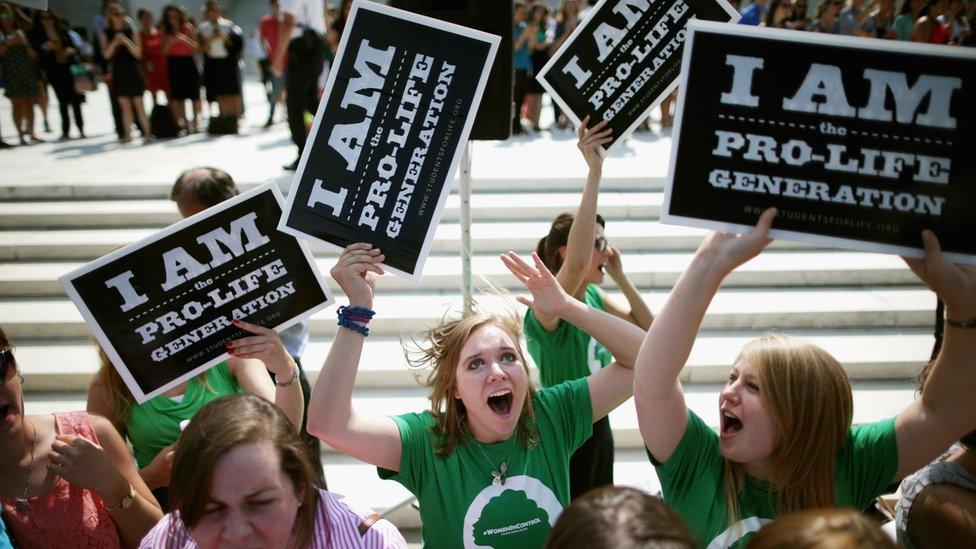'Handmaid's tale' protest at US Ohio abortion bill
- Published
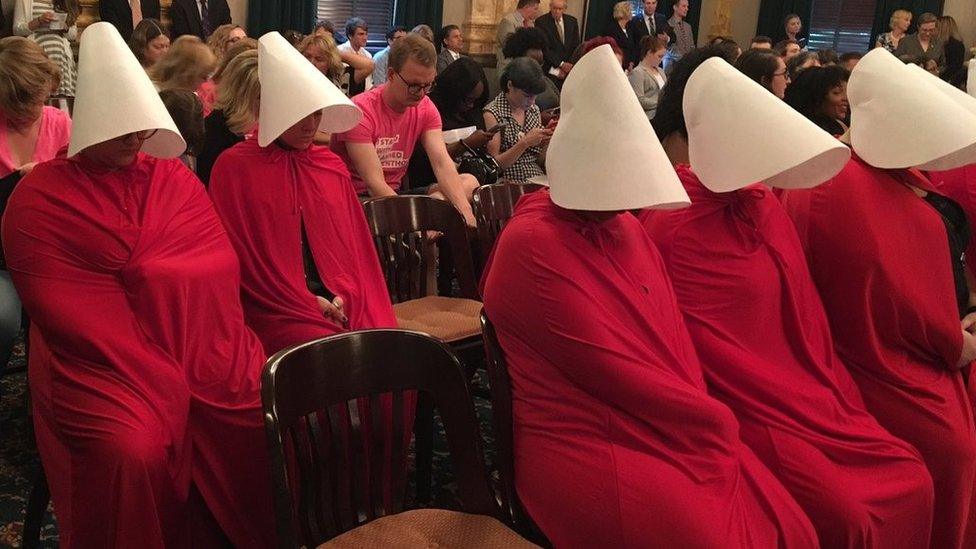
The Handmaid's Tale has inspired several protests in the US this year
Activists in the US state of Ohio have been inspired by The Handmaid's Tale in their protest against a bill placing more restrictions on abortion.
Several women held a silent protest in red robes and white bonnets - like the characters in the dystopian novel and TV series where fertile women are captured and forced to have children.
The proposed state legislation would ban a method of abortion commonly carried out in the second trimester.
Critics call the bill unconstitutional.
Senate Bill 145 , externalis sponsored by members of Ohio's Republican party who say they want to end what they describe as inhumane and brutal dismemberment abortions.
The bill makes an exception where the mother's life is in danger.
However, opponents say the ban against dilation and evacuation is an attempt to block access to a common and safe abortion method.
They also argue it would particularly affect women who already struggle to obtain access to an abortion.
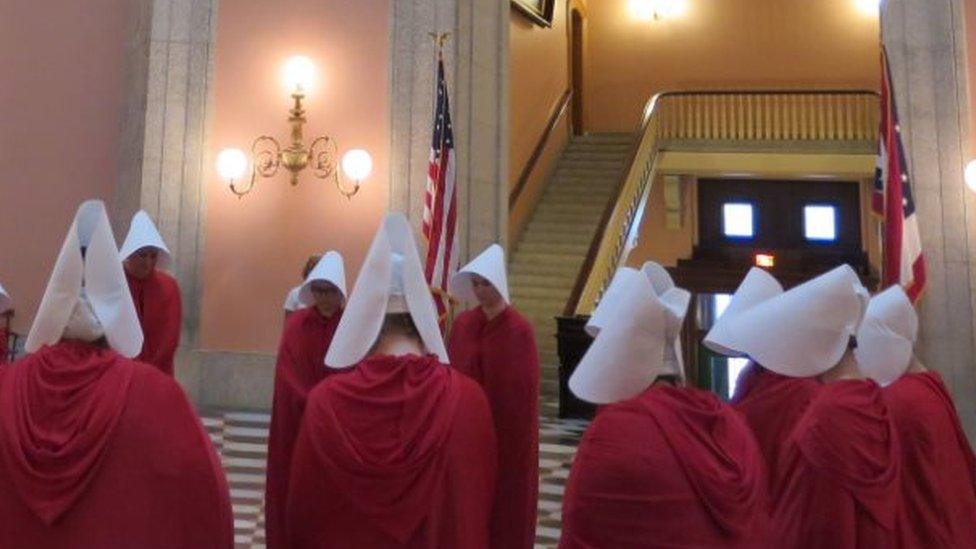
The protesters gathered in the Ohio Statehouse rotunda
The Handmaid's Tale has inspired several protests against anti-abortion bills this year, including in Texas and Missouri.
The novel, by Margaret Atwood, is set in a future, dystopian America, where a violent dictatorship has been imposed and women have been stripped of all their rights.
In the novel, much of the population has become sterile, so the few remaining fertile women are captured and given to society's highest-ranking men as "handmaids", to bear the children.
Speaking to the BBC in October, Atwood said the book still had resonance, and had become a meme, because "the religious right in the United States has not faded away".
Margaret Atwood said she worries about women's issues under Mr Trump
Trump's order on abortion policy: What does it mean?
US abortion debate: Both sides speak
Anti-abortion activists have been energised by the Republicans gaining control over the White House and Senate in November's election.
President Trump has in the past expressed support for a woman's right to have an abortion, but during the campaign announced that his views on the subject "have evolved".
He told an interviewer that he favoured "some form of punishment" for women who have abortions, but changed his position only hours later to say only the person performing the abortion should be punished.
- Published13 October 2016
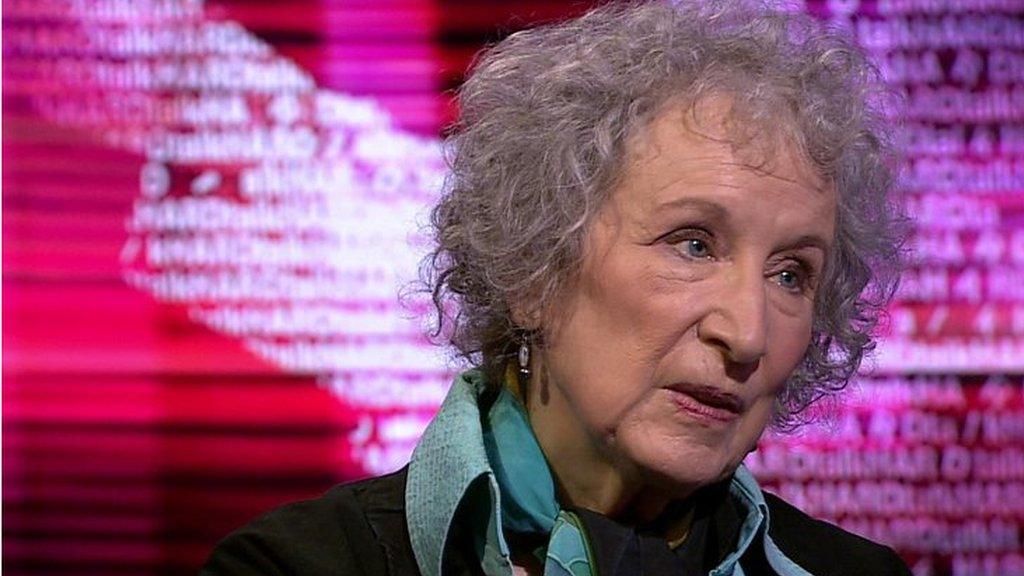
- Published27 January 2017

- Published24 January 2017
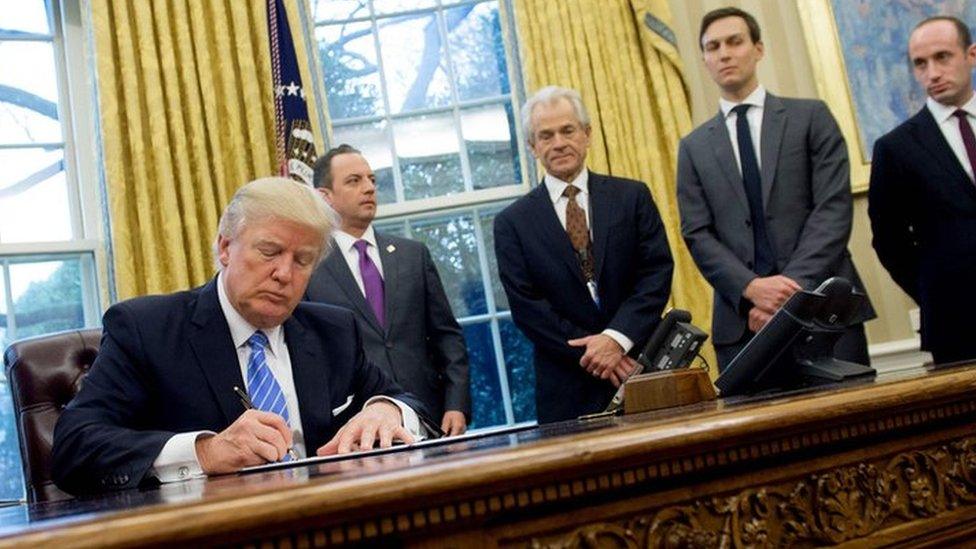
- Published19 September 2016
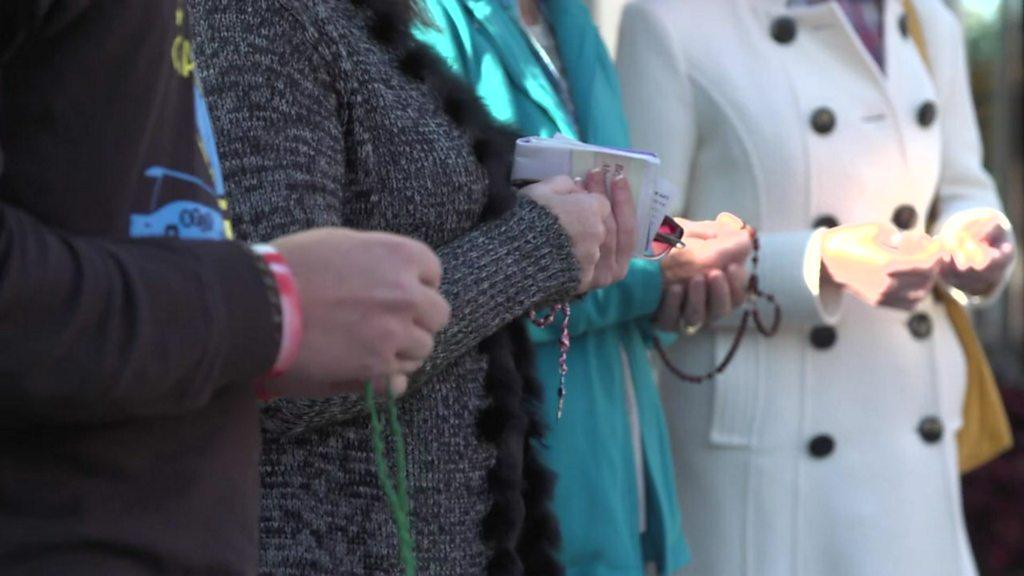
- Published25 October 2015
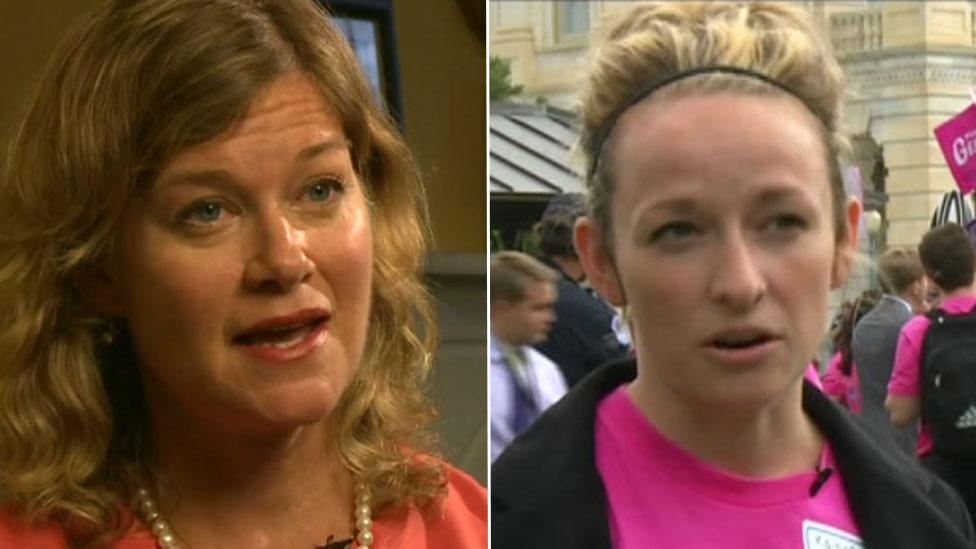
- Published19 May 2016
